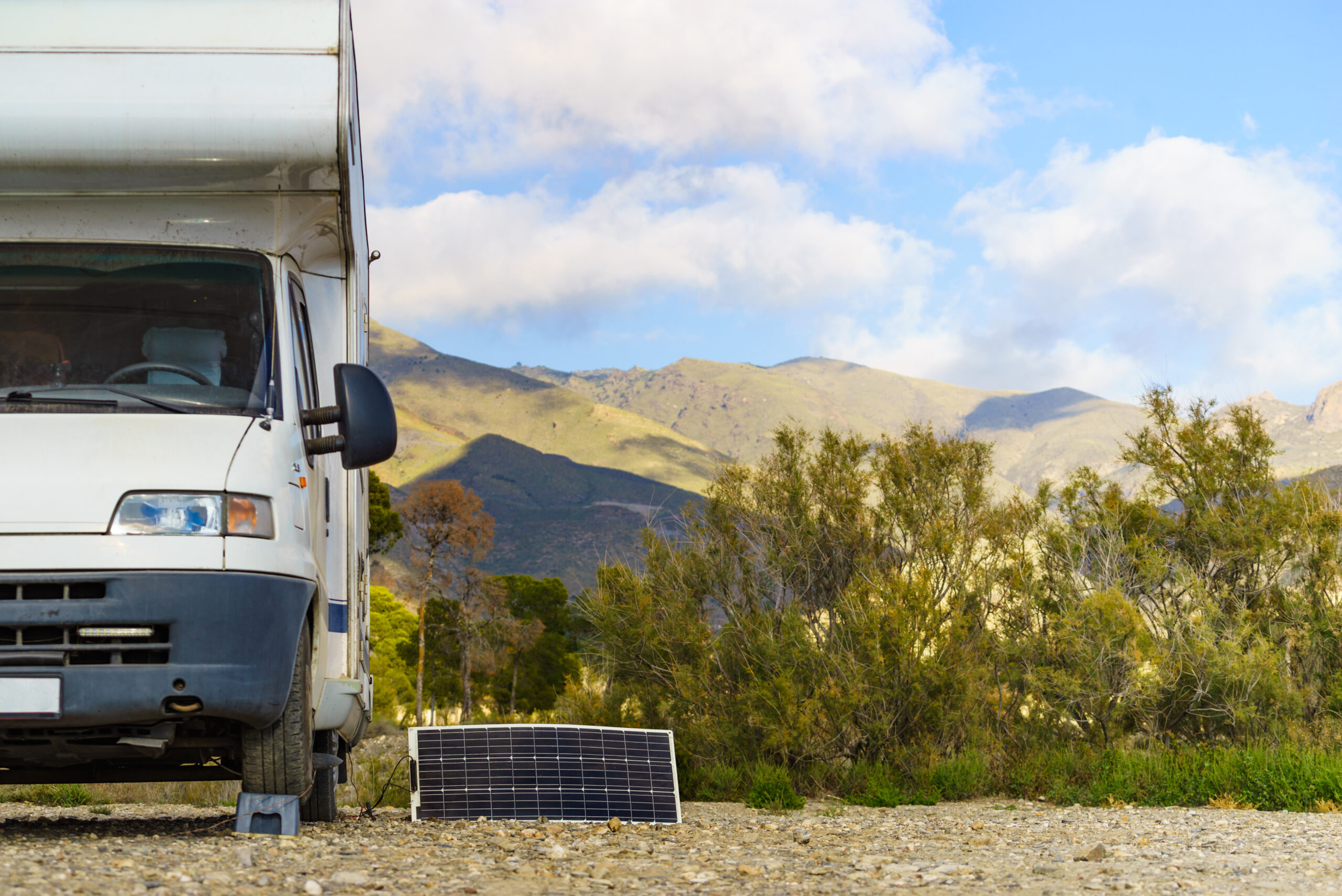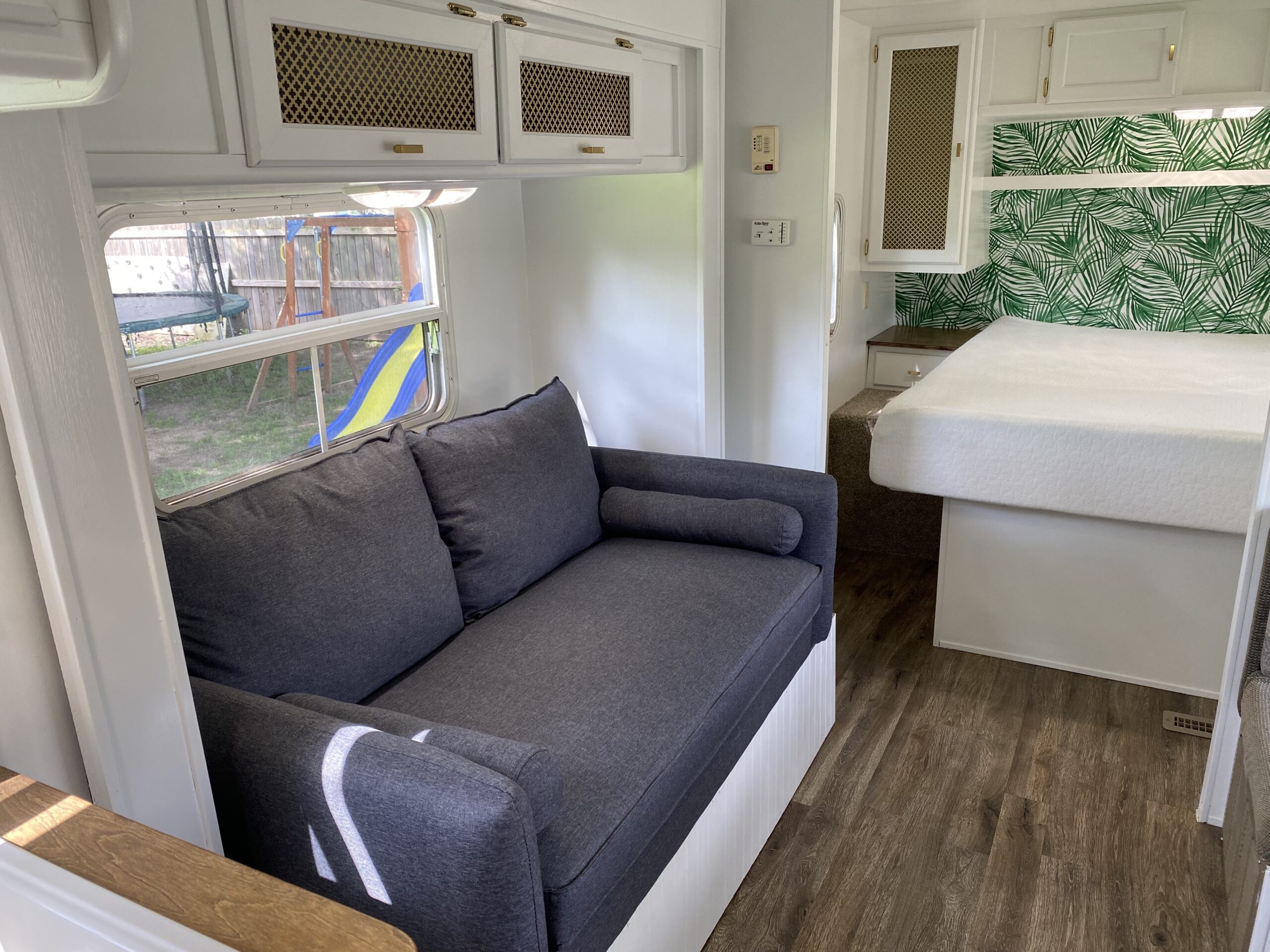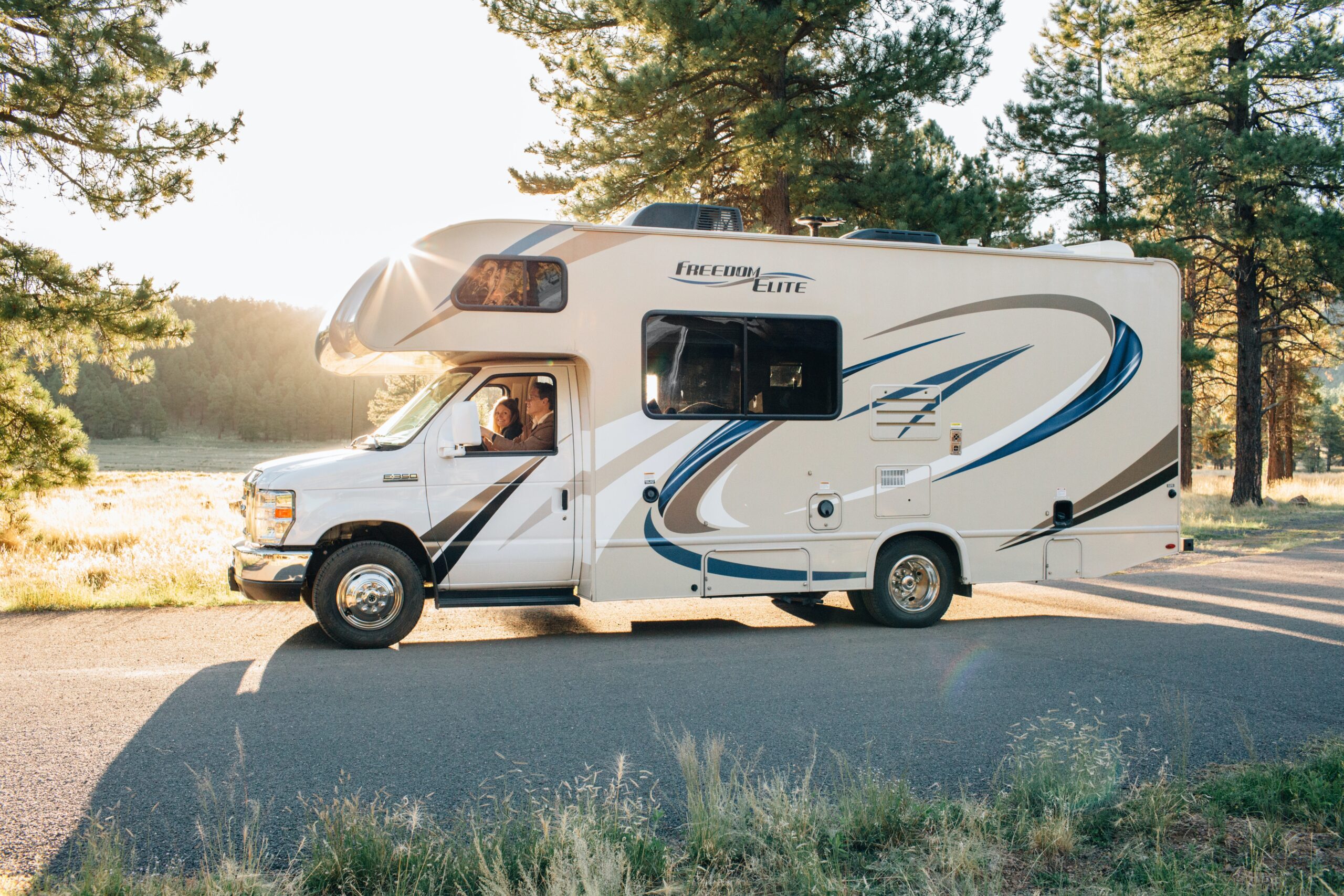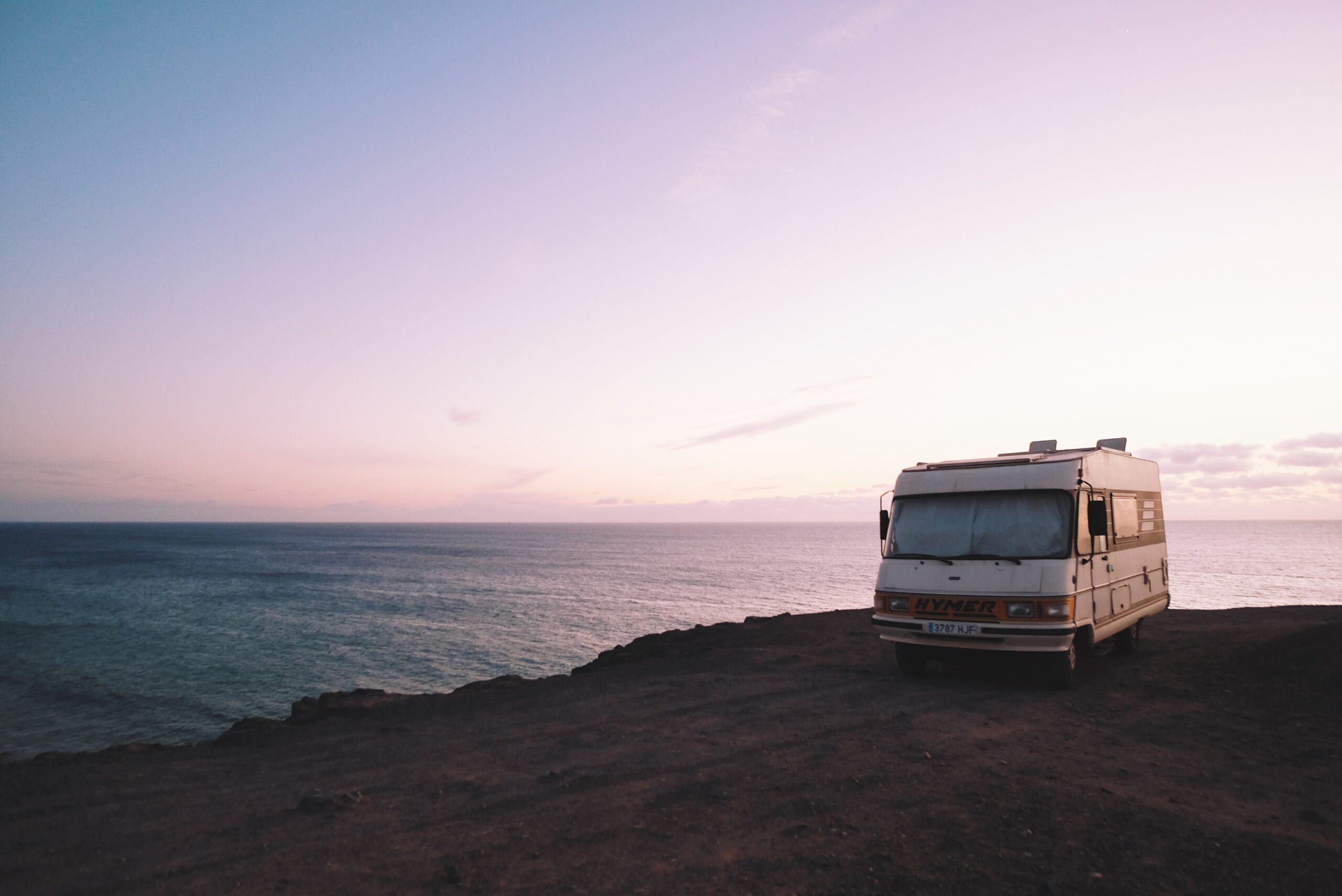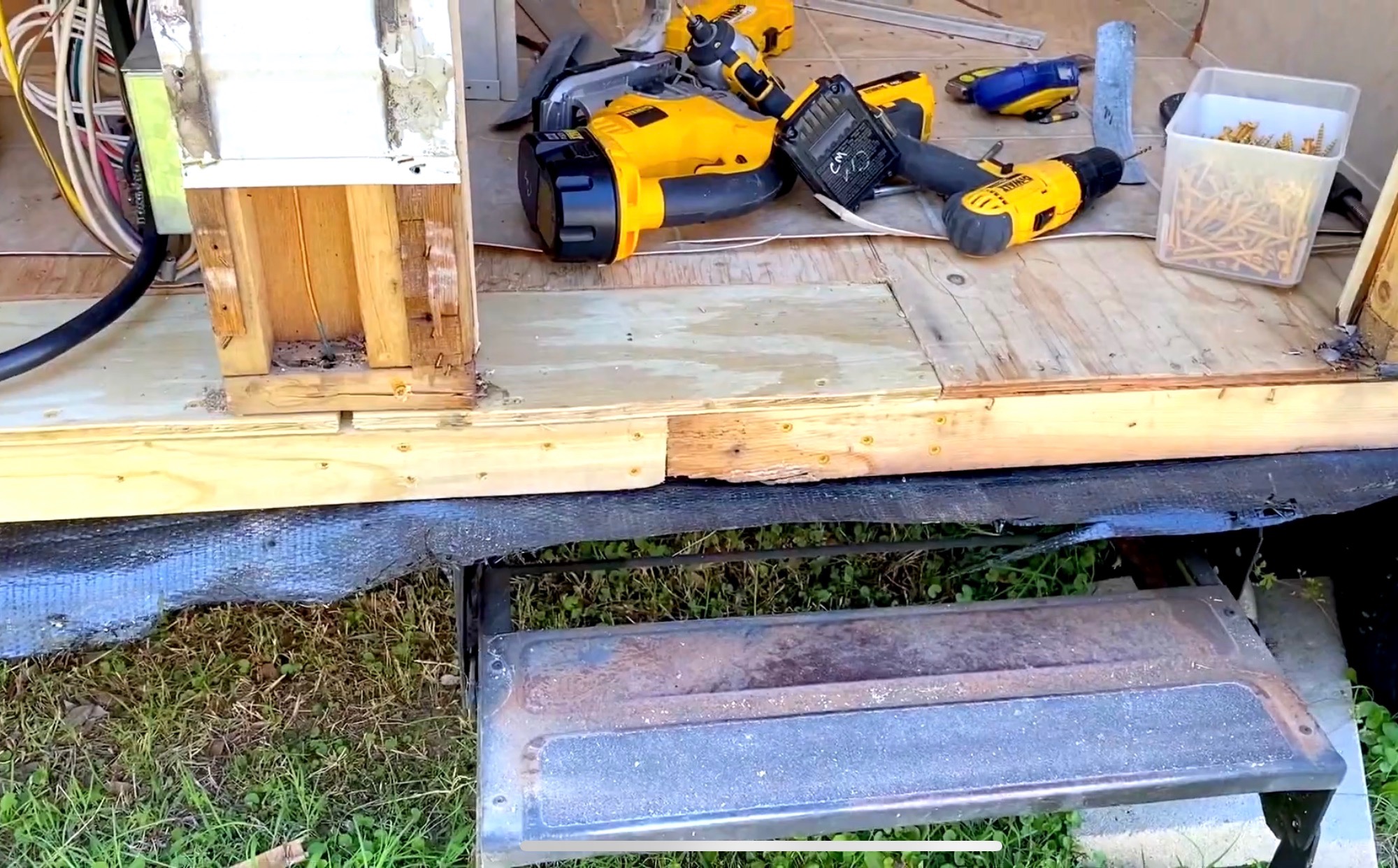There is a learning curve with solar power and you should definitely learn as much about using it with an RV as possible. Hopefully, that’s why you’re here.
To start with, it’s a marriage made in heaven. Solar power systems can be integrated to connect directly to your system’s power converter. An RV power station is wired with both AC and DC sections. You’ll see fuses and circuit breaker panels.
This is because your RV system is designed to function with battery power alone. Not all systems will work from DC power, however. Your lights and power outlets will work from your battery.
Your refrigerator will work from battery power, though this will quickly run a battery down, and utilizing your propane setting is advisable.
Your water pump and hot water heater ignition will also work from the 12-volt power supplied by your chassis battery.
You can utilize solar panels to continuously charge that chassis battery to enable your use of these systems for extended periods of time.
Your RV Has a 12-Volt System
Your system is powered by a deep-cycle marine/RV battery. This means that you should use 12-volt solar panels that will match the power size of your battery.
You can connect your charging panels directly to your battery if you utilize a solar charge controller between them to ensure that your battery is not overcharged.
You may also enhance the amp hours of your system by connecting multiple batteries in a parallel string. You can also get far more in-depth if you are experienced with wiring systems or wish to hire someone who is.
By adding a power inverter, connecting that to your batteries, and actually plugging your RV into that inverter with a plug adapter, you might be able to run all systems with enough solar panels.
Bear in mind that if you wish to run your air conditioning, you will need an incredible battery bank. It is not unheard of for the air conditioner of your RV to pull 3500 watts each time the compressor kicks on. That is a very powerful and deep draw that most batteries cannot handle.
I’ve seen cases of people doing this with extremely expensive lithium batteries. They can take the strain of a complete drain and fully recharge. Typical deep-cycle flooded lead batteries that your RV comes equipped with will be rendered useless under such power strain.
For all other intents and purposes, running a small solar system to charge your RV for lighting, ignition of gas hot water heater, and other small power needs will operate perfectly.
Small Solar System Panels Best-Suited for RVs
Luckily for you, there are many solar panels and systems that are designed to make it simple to install them in an afternoon. Let’s have a look at some of the best-rated systems that are goof-proof.
Renogy 100 Watts 12 Volts Monocrystalline Solar Starter Kit

Renogy is one of the most well-known solar companies in existence. They are a favorite of the DIY solar system installers across American. This kit comes with 1 solar panel of 100-watts.
There is a 30-amp solar charge controller, all the connectors needed and 8 feet of 10 AWG wire, plus the brackets necessary to permanently mount the pan to the roof of the RV, should you choose to do so.
The 30 amp charge controller will allow you to add an additional panel later on if you’d like to. This system has the potential to fully charge your RV battery with 6 hours of sunlight. It may vary depending on clouds and the angle of your panel in relation to the sun.

The panels have an aluminum frame for use outdoors. They can last for 10 to 20 years or more. This system is very small but effective if you are planning on doing some occasional boondocking.
It’s an inexpensive introduction to using solar power to keep your battery charged and ready at all times.
WindyNation 100 Watt Solar Panel Off-Grid RV Boat Kit

This is also a 100-watt system. Windy Nation is also one of the better known solar companies that are out there helping the DIYer with small systems for cabins, boats, and RVs.
This kit has a panel, a 30-amp charge controller, a battery temperature sensor, 40 feet of 12 AWG cables that give you far more flexibility in setting panels up further away from your camper without mounting permanently to your roof. You can, however, mount them if you like.
This kit averages an output of 33 amp-hours of charge per day. This means that it can provide up to 350 watts of power per day. This system has more expandability, able to handle 4 panels, and gives you a great deal of flexibility to expand your power collection capabilities.
This system was designed for boats and RVs that would be without a shore power connection for days or even weeks at a time. Indeed, the world is often out there, unplugged, and solar power gives you the opportunity to explore those places.
ALLPOWERS Solar Panel 100W 18V 12V Bendable

This is a genuine game-changer. If you’re not someone who feels comfortable lugging solar panels and mounting them to your roof, flexible panels give you far greater flexibility. They are lightweight, can be bent into a position that better catches the sunlight, and can easily be moved. They can be bent at a 30-degree angle.
They are very thin and allow for easy storage in your basement area, in storage compartments. They are extremely durable and more resistant to damage from weather events such as hail. While the single panel in this kit is also a 100-watt panel like the others, it weighs a mere 4.7 pounds.
This is strictly for the panel itself. You may purchase these individually and create your own system with as many panels as you’d like, provided you use a charge controller large enough for the number of panels you connect.
Making Your Choices
If you plan on tackling your solar upgrade yourself, make sure you learn as much as you can, read reviews, and ensure you choose a panel that comes with a warranty and solid customer service that will be there to answer your questions.
It’s also a great idea to join some online forums and see which systems others are using and if they are happy. Other consumers who are using the systems in the same way you plan to will be an amazing wealth of information.
Ensure that if you purchase your components separately, you match them all correctly. They should all be 12-volt components. Bear in mind there are many homes that utilize 24-volt, 36-volt, and even 48-volt systems.
Therefore, inverters, charge controllers, and other things can be found with different voltage specifications. If you are using a 12-volt system, with a 12-volt battery, then your inverter should be 12-volt and your panels need to be wired in a parallel string of 12-volts.
If you follow these basic instructions and choose a system that has been selected and put together as a kit by the manufacturer, your job will be far simpler. ensuring your success.

